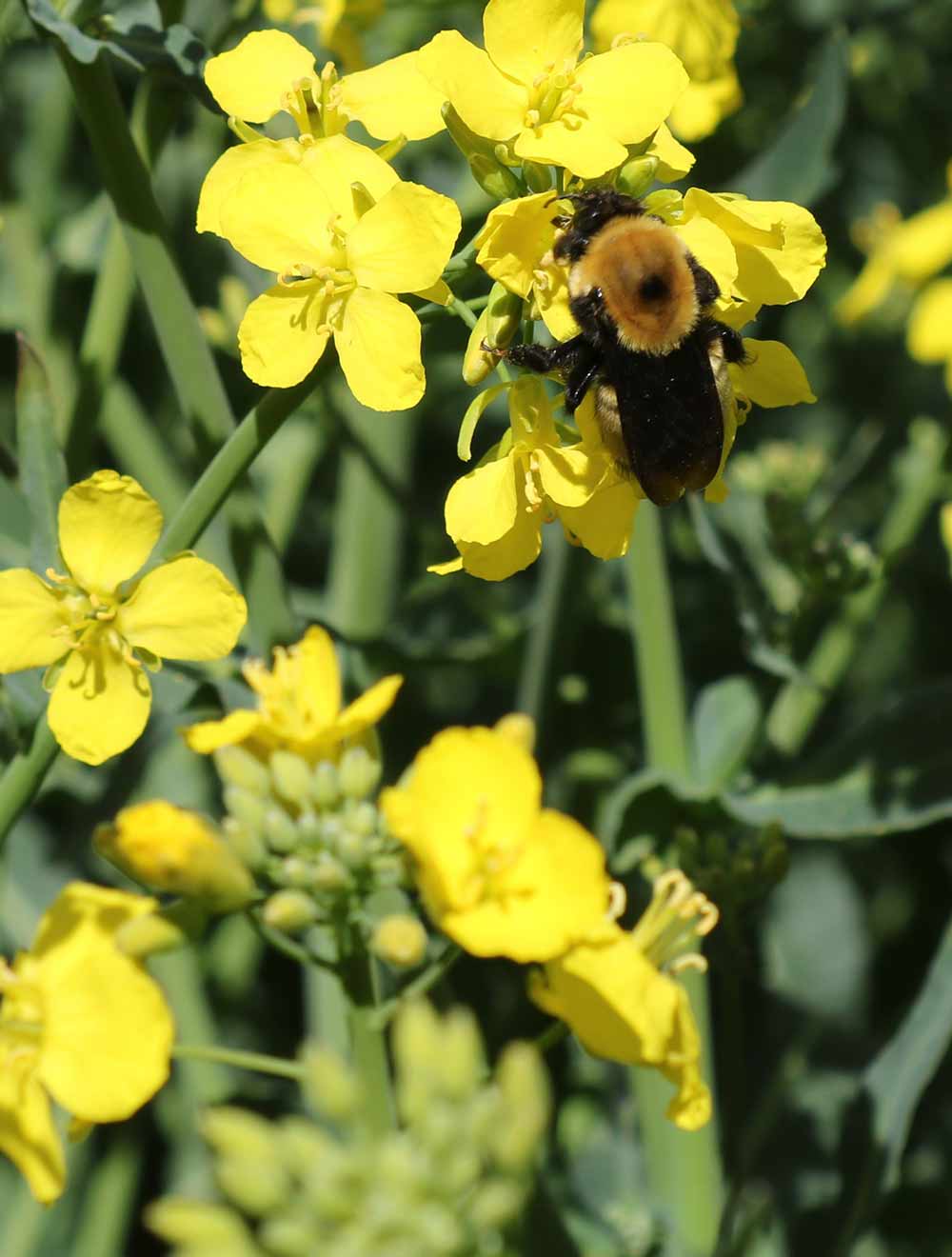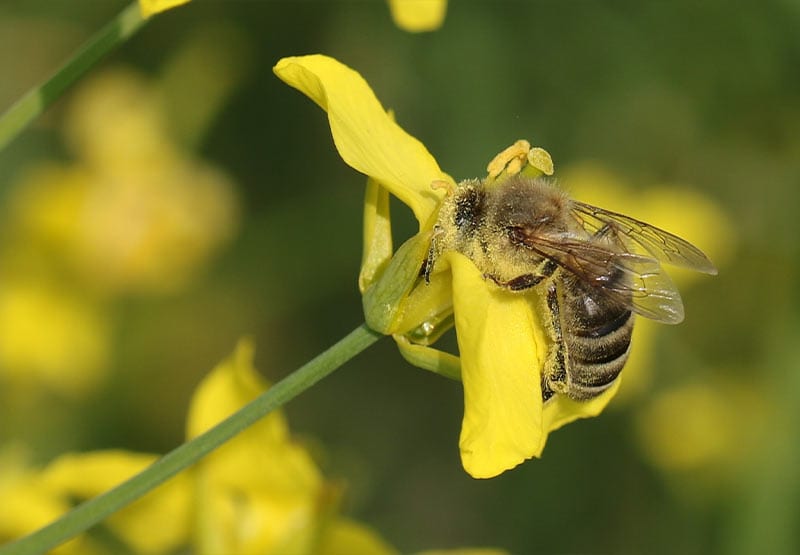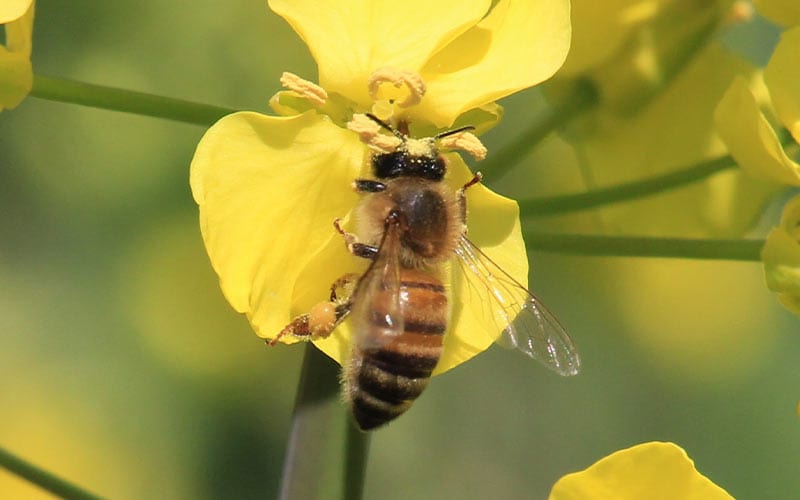Canola Health Benefits
Can vegetable oil really be healthy? The answer: that depends on the oil! Canola oil is one of the healthiest oils available to consumers. A tablespoon of canola oil contains only 120 calories, is low in saturated fat, and has a very mild flavor that allows the flavor of food to shine through rather than the oil. Canola oil is gaining in popularity for the home cook and professional chefs because of its light flavor, high smoke point, and proven health benefits. The following information is also available on the U.S. Canola Association website and Northern Canola Growers website.
Nutrition and Cooking
Of all culinary oils, canola oil has the least saturated fat, including less than half that of olive oil. In fact, the U.S. Food and Drug Administration authorized a qualified health claim that just 1 1/2 tablespoons of canola oil per day may reduce the risk of coronary heart disease when used in place of saturated fat.
Monounsaturated fat lowers "bad" LDL cholesterol and helps control blood sugar. Compared to other cooking oils, canola is one of the best sources of this beneficial fat.
This anti-inflammatory substance, known as alpha-linolenic acid (ALA), may improve heart health. The body cannot make it, so it must be consumed. Out of all the cooking oils, canola oil has the most ALA omega-3. Just one serving provides 81 percent of the daily recommended intake of ALA for adults.[1]
Trans fat is known to contribute to the risk of heart disease because it increases LDL cholesterol and lowers "good" HDL cholesterol. Too much cholesterol in your diet is also known to increase the risk of heart disease. Canola is free of both trans fat and cholesterol, adding to it's dietary benefits.
Vitamin E is an antioxidant that may help protect the heart, however, it's a nutrient that can fall short in the American diet. With just one serving of canola oil, adults receive 16 percent of the recommended daily intake of vitamin E. Vitamin K, on the other hand, is beneficial to maintaining normal blood flow. Canola oil contains 20 percent of the recommended daily amount of vitamin K per serving.
Canola is one of the more healthy vegetable oils, especially when it comes to plant sterols, which are believed to reduce the risk of heart disease.
There are a lot of ways to invest in one's health. Canola is one of the least expensive, costing just pennies per serving for numerous heart-healthy factors.
Bees and Canola - Thriving Together
There’s been a strong link detected between canola and the honey industry. Bees are drawn to the color and scent of canola, which provides a good source of nectar for bees, and the productivity and quality of canola are improved by bee pollination. Bottom line: canola is an ideal food source for bees, and bees help enhance canola production. There are some great pictures of canola pollinators in our Photo Gallery - be sure to check them out!
Advances in hybrid seed have been the foundation of the canola industry’s success – and pollination is considered a must-have for production of quality hybrid seed. One study showed that the presence of pollinators can increase the germination of resulting seeds from 83 percent to 96 percent.[2]
Commodity canola production does not rely on pollinators; however, several studies have shown a significant impact on both productivity and quality when canola is pollinated by bees. This is partly because bees transfer pollen more efficiently than self-pollination in Argentine (napus) varieties. Demonstrated benefits of bee pollination of canola include:
- More uniform flowering and earlier pod-setting,[3] which has the potential to reduce green seed counts
- Increase in the number of pods per plant, seeds per pod and seed weight[4]
- Reduction in the amount of time canola blooms by 17 percent[5]
- Increase in the seed weight per plant by anywhere from 13 percent[6] to nearly 50 percent[7]
Researchers are exploring the potential for honeybees to spread beneficial fungi for keeping insects like Lygus bugs at bay, meaning honeybees just may be the solution for controlling insect and fungal pests.
The sugar profile of canola nectar is great for honey production, and the plentiful pollen offers a good balance of amino acids, protein, and fats.[8]
When canola flowers, bees are able to gather nectar without having to travel long distances. As an added bonus, the extended blooming period for canola fields provides bees with a good source of nectar for up to a month.
The light color and mild flavor make canola honey a top choice in the marketplace.[9]



